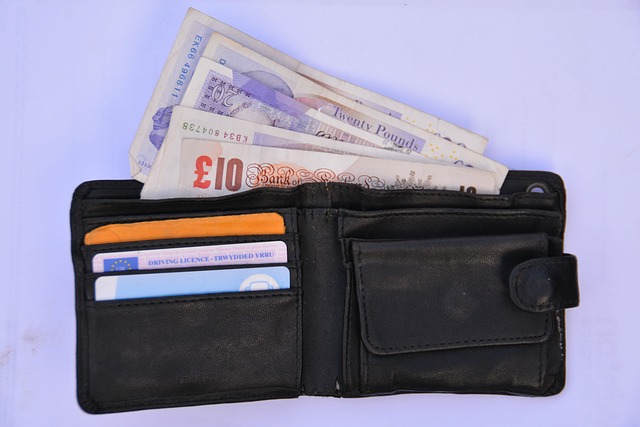Debt consolidation mortgages can help individuals with bad credit manage multiple debts at lower interest rates. Unsecured consolidation loans, though riskier for lenders, offer a collateral-free way to simplify debt obligations and reduce monthly payments. To secure these loans, borrowers must meet eligibility criteria focusing on income stability and debt history. A strategic approach includes comparing offers, providing accurate financial records, and adhering to repayment terms. Regular budget assessments, prioritizing high-interest debts, and automatic payments aid in efficient debt reduction, improving credit scores and future loan prospects, including Debt Consolidation Mortgages.
Struggling with debt due to a less-than-perfect credit history? Discover how unsecured consolidation loans can offer a solution. This comprehensive guide explores debt consolidation mortgages as an option for those facing multiple debts and poor credit scores. We’ll break down the process, from understanding bad credit and its impact to navigating the application steps and managing your loan effectively. Learn about the benefits and eligibility criteria to make informed decisions regarding your financial future.
- Understanding Bad Credit and Debt Consolidation Loans
- Exploring Unsecured Consolidation Loans: What They Offer
- Eligibility Criteria for Unsecured Debt Consolidation
- The Application Process: Steps to Secure Funding
- Managing Your Loan: Repayment and Tips for Success
Understanding Bad Credit and Debt Consolidation Loans

Bad credit can often make it challenging for individuals to secure loans, but this doesn’t mean options are non-existent. Debt consolidation loans specifically tailored for those with less-than-perfect credit scores offer a potential solution to manage and reduce debt. These loans work by combining multiple debts into one, typically with a lower interest rate, allowing borrowers to pay off their creditors in full while streamlining repayment.
Debt consolidation mortgages are particularly attractive as they provide an opportunity to not only improve financial health but also potentially save on interest over time. However, individuals with bad credit histories should be prepared to face higher interest rates and possibly shorter repayment periods compared to those with excellent credit. Building a solid repayment history and demonstrating responsible borrowing practices can help borrowers in the long run, improving their chances of securing better terms for future loans.
Exploring Unsecured Consolidation Loans: What They Offer

Unsecured consolidation loans are a viable option for individuals dealing with multiple debts and a less-than-perfect credit history. Unlike traditional Debt Consolidation Mortgages that require collateral, unsecured loans offer flexibility by not tying up any assets. This makes them an attractive choice for those seeking to simplify their financial obligations without the added risk of losing property.
These loans aggregate various outstanding debts into a single repayment stream, significantly reducing monthly payment pressure and simplifying debt management. The process involves borrowing a lump sum to pay off multiple creditors, with the loan amount typically based on your income, creditworthiness, and existing debt burden. By consolidating, borrowers can enjoy lower interest rates, fixed payments, and the convenience of dealing with a single lender rather than multiple creditors.
Eligibility Criteria for Unsecured Debt Consolidation

When considering an unsecured debt consolidation loan, understanding the eligibility criteria is paramount. Lenders will assess your application based on several key factors. Firstly, a poor credit history doesn’t necessarily disqualify you; many lenders specialize in offering loans to individuals with bad credit. However, expect higher interest rates and stricter terms as compensation for the risk they’re taking.
In addition to credit score, lenders will evaluate your income stability, debt-to-income ratio, and the type and amount of debts you carry. For debt consolidation mortgages, a stable employment history and proof of regular income are essential. Lenders aim to ensure you have the means to repay the loan, making it a collaborative process that requires transparency about your financial situation.
The Application Process: Steps to Secure Funding

The process of securing an unsecured consolidation loan for individuals with a bad credit history involves several key steps. First, applicants should compare different lenders and their offers, focusing on interest rates, repayment terms, and any fees associated with the loan. This step is crucial as it ensures you get the best deal possible, especially when dealing with less-than-perfect credit.
Once a lender is chosen, applicants need to provide detailed financial information, including proof of income, current debt obligations, and a comprehensive credit report. Lenders will assess this data to determine your ability to repay the loan. They may also verify employment and other personal details. Successful approval requires transparency and accurate documentation. Additionally, understanding the terms and conditions of the Debt Consolidation Mortgages is essential, ensuring you know the interest rate, repayment schedule, and any penalties for early repayment.
Managing Your Loan: Repayment and Tips for Success

When you’ve secured an unsecured consolidation loan for bad credit history, effective management is key to overcoming your financial challenges. Repayment is a crucial aspect of this journey. Start by creating a realistic budget that accounts for all your expenses and loan payments. Prioritize paying off high-interest debts first, as this can save you money in the long run. Consider setting up automatic payments to avoid missing deadlines, which may incur penalties.
Regularly reviewing your financial situation and adjusting repayment strategies as needed is essential for success. Stay disciplined, stick to your budget, and make extra payments whenever possible to reduce debt faster. Remember, timely repayments not only help improve your credit score but also demonstrate your reliability as a borrower, making it easier to access better loan terms in the future, including potential Debt Consolidation Mortgages.
For those with a history of bad credit, securing funding for debt consolidation can seem daunting. However, unsecured consolidation loans offer a viable path to financial stability. By understanding your options, meeting eligibility criteria, and following a structured application process, you can take control of your finances. Managing these loans responsibly through timely repayments will not only help improve your credit score but also pave the way for better financial opportunities in the future, including potential debt-free living and improved access to credit, like Debt Consolidation Mortgages.
